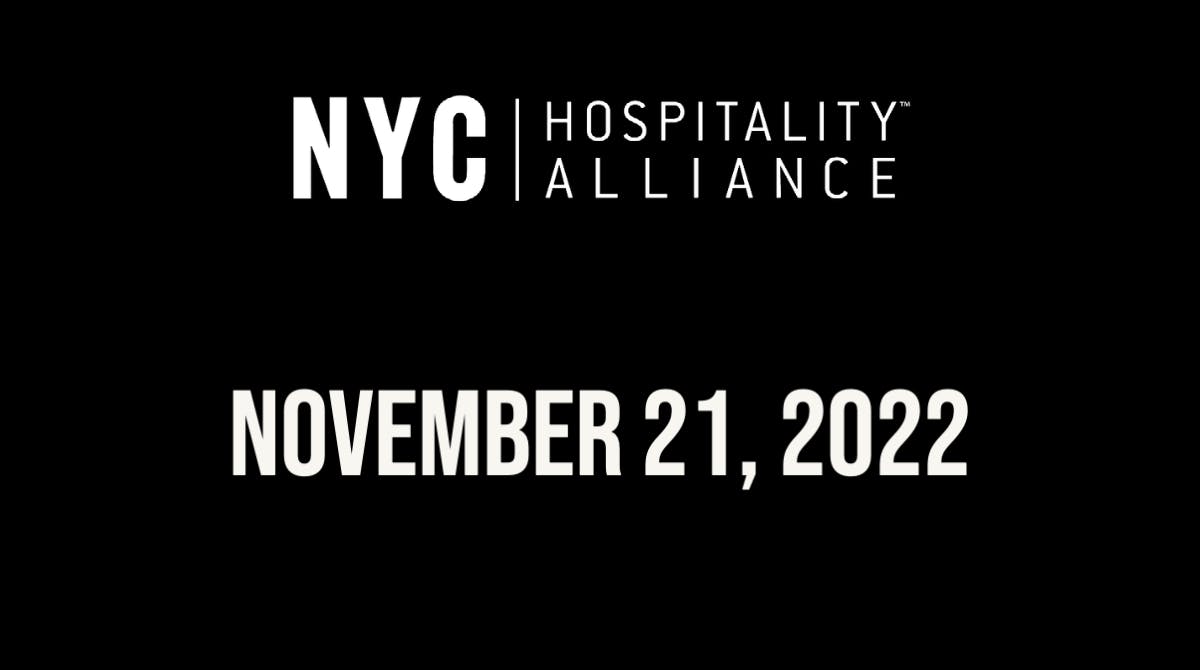Proposal Would Change the Way Restaurants Manage Trash

Last week, the NYC Hospitality Alliance submitted testimony at a Department of Sanitation (DSNY) hearing on their proposed rule that if implemented will require businesses to place their trash on the curb no earlier than 8:00 pm, so long as collection occurs later the same day or the day immediately following; or place materials in a receptacle with a tight-fitting lid no earlier than one hour before closing, so long as the scheduled collection occurs before the establishment next opens for business.
The Alliance supports DSNY’s efforts to mitigate the city’s rat population and improve quality of life for all by reducing the time garbage bags sit on our streets before pickup. Although we support various efforts to achieve these goals, the City should focus on the most effective means of achieving them - citywide street containerization of garbage. That would keep our streets cleaner for pedestrians, residents, businesses, and those dining alfresco at restaurants, without presenting the challenges to certain businesses that we describe below.
Because most of The Alliance’s members operate their businesses during the evening, they already place their trash on the curb after 8:00 pm and should not be affected by the proposed rule. However, there are many foodservice establishments that do not provide dinner service or operate past 8:00 pm, including limited-service restaurants, bagel shops, coffee shops, other lunch-focused businesses, and bakeries. While the proposed rule would allow these businesses to leave garbage in a tight-fitting receptacle an hour before closing, it would create unnecessary hardship when considering storage of the receptables when not in use. These businesses have extremely limited indoor storage space, and most of them do not have access to a back or side alleyway. Storing hard rigid containers inside until an hour before closing can be impossible and/or create operational challenges for staff having to carry large containers through small corridors, up cellar doors, and the like.
The solution to this problem is to allow businesses that use these receptacles to keep them curbside at all times. Alternatively, these businesses should be given the option to place their garbage on the sidewalk an hour before their posted closing time, without a container. These morning and afternoon businesses make some of the most iconic and quintessentially “New York City” meals. They should not be saddled with a requirement that is impossible to achieve.
DSNY must also provide flexibility to businesses generally on where these outdoor containers may be located based on the location of the business and design of the streetscape. For example, a restaurant with a narrow storefront located midblock with a bus stop out front may need to place receptacles elsewhere in the area where their carter would be required to pick them up from.
Some commercial carters do not always pick up garbage on time or provide everyday service. This must not result in restaurants and similar businesses being fined for non-compliance. Relatedly, consistent with the stated priorities of Mayor Adams, it is essential that any first-time violation provides for a $0 fine with a warning and/or a cure period to correct the violation.
We also ask that DSNY clarify whether they will be providing any receptacles as our community is concerned about the additional cost that containerization and replacement due to theft or damage will have on their businesses. We ask that DSNY share more information on the commercial availability of such receptacles, given the recent supply chain issues caused by the pandemic, and likely exacerbated by thousands of businesses being required to obtain receptacles all at the same time.
Finally, we suggest incorporating/delaying the effective date of these rules until the Zone Carting system takes effect, as it may be easier to coordinate containerization of trash for multiple commercial businesses in close proximity once there is a single responsible carter, which should be considered as part of this proposed Rule. For example, perhaps a single container may be shared by multiple businesses in close proximity.
The Alliance supports the intent of cleaning up our city streets but wants to ensure and new requirement do not unfairly harm restaurants and nightlife establishments
